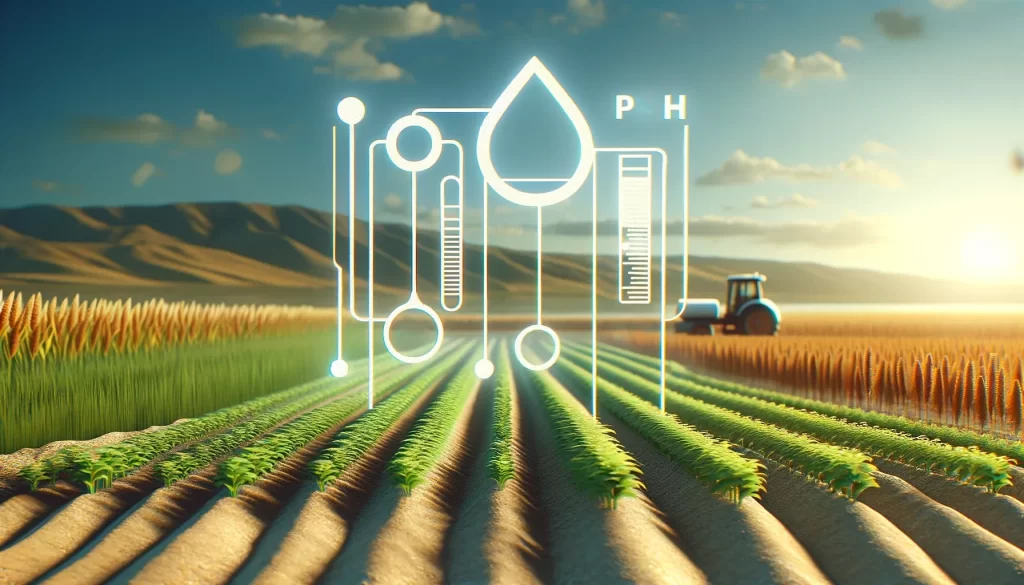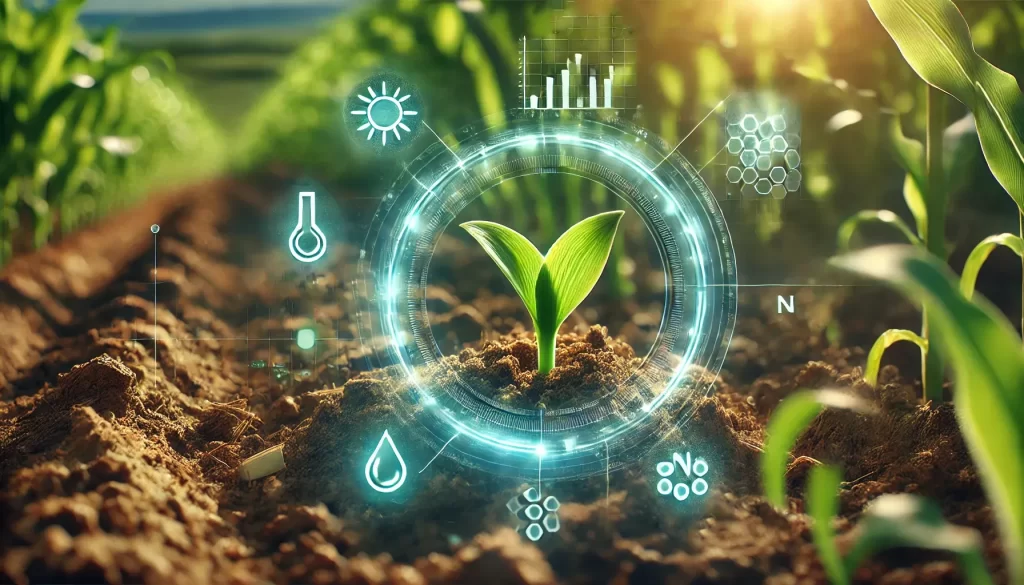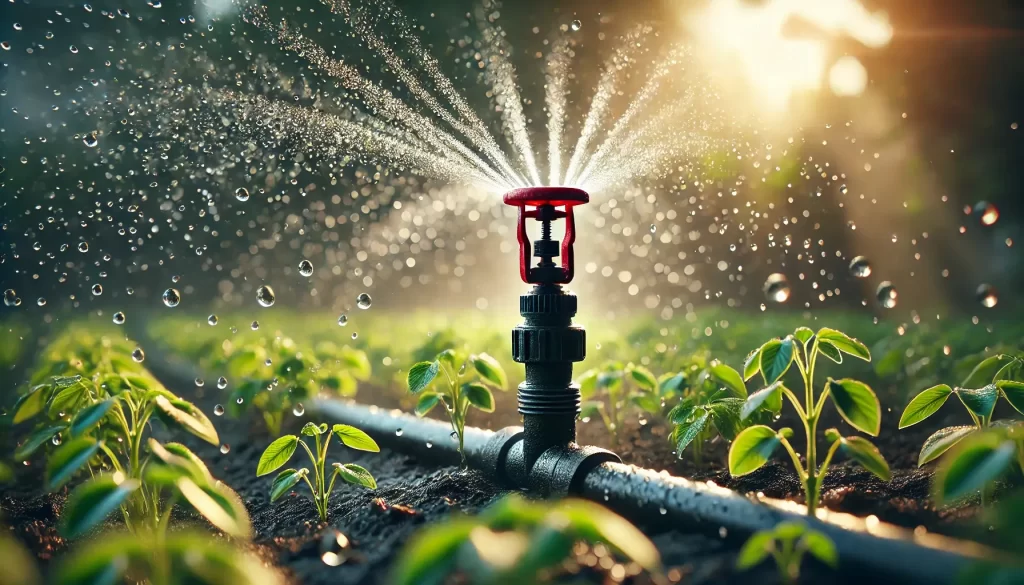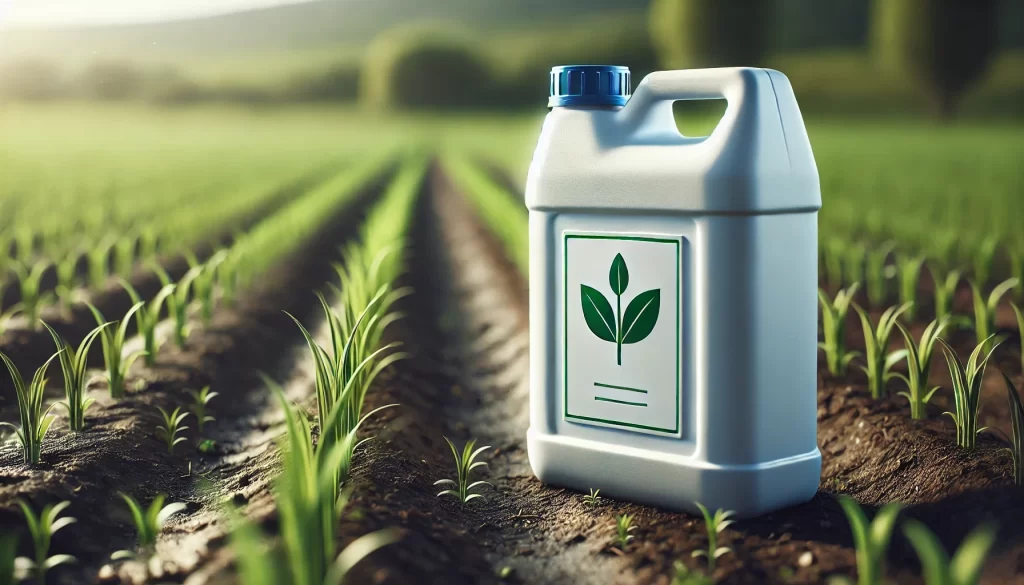Soil and nutrient solution pH is critical for the healthy growth and development of plants. The appropriate pH range optimizes nutrient uptake, microbial activity and soil fertility. Liquid fertilizers play an important role in regulating soil and nutrient solution pH, increasing efficiency and sustainability in agricultural production and horticulture.
In this article, we will examine the pH regulation properties, usage areas and application techniques of liquid fertilizers. Additionally, liquid fertilizer We will touch upon the points to be considered in its selection and application.
PH Regulation Mechanisms of Liquid Fertilizers
Liquid fertilizers can be produced in formulations containing acids or bases . Acid containing liquid fertilizers, high pH It is used to lower the pH in alkaline soils. Liquid fertilizers containing base /a> is used to raise the pH in low pH (acidic) soils.
Remediation of Acidic Soils:
In acidic soils, high pH prevents the uptake of micronutrients such as iron, manganese and zinc by plants. Liquid fertilizers containing acid reduce the solubility of toxic elements such as aluminum and iron in the soil, It creates a healthier environment for plants.
Reclamation of Alkaline Soils:
In alkaline soils, low pH prevents the uptake of nutrients such as phosphorus and molybdenum by plants. Liquid fertilizers containing base facilitate the uptake of nutrients by increasing the concentration of cations such as calcium and magnesium in the soil.
pH Buffering Capacity:
The pH of soils is affected by many factors, such as clay and organic matter content. If soils have a high pH buffering capacity, it will be more difficult to change pH. The pH regulation effect of liquid fertilizers depends on the pH buffering capacity of the soil. changes to .
Usage Areas of Liquid Fertilizers in pH Regulation
Liquid fertilizers are used for pH regulation in many areas such as agricultural production, gardening, hydroponic and aeroponic systems.
Agricultural Production:
In agricultural production, liquid fertilizers are used to increase the nutrient uptake and productivity of plants by optimizing the pH of the soil.
Gardening:
In horticulture, liquid fertilizers are used to regulate the pH of potting soil and ensure the healthy growth and development of ornamental plants.
Hydroponic and Aeroponic Systems
In hydroponic and aeroponic systems, nutrient solution pH directly affects plant nutrient uptake and growth. Liquid fertilizers are used to maintain the nutrient solution pH at an optimum level.
Liquid Fertilizer Selection and Application
When choosing liquid fertilizer, factors such as soil pH, plant type grown and desired outcome should be taken into consideration. Liquid fertilizers should be selected and applied at the correct dosage based on soil analysis and expert advice.
Dosing and Application Techniques
Dosing of liquid fertilizers should be done according to soil analysis and nutrient content of the fertilizer. Liquid fertilizers can be applied via irrigation systems or directly to the soil.
Points to Consider:
Some points to consider regarding the use of liquid fertilizers in pH regulation are:
- The pH of liquid fertilizers should be checked before application.
- Liquid fertilizers should not be applied in excessive doses.
- Liquid fertilizers can be applied by mixing them with irrigation water.
The Effect of Liquid Fertilizers on pH Regulation
The effect of liquid fertilizers on pH regulation, soil and nutrient solution pH It improves the nutrient uptake, productivity and general health of plants by optimizing the nutrient intake.
Plant Nutrient Intake:
In the appropriate pH range, plants absorb nutrients more easily and efficiently. Liquid fertilizers optimize the plant’s uptake of macro and micronutrients by bringing soil pH to an optimum level.
Microbial Activity:
Microorganisms in soil are responsible for many important functions such as organic matter decomposition and nutrient cycling. Liquid fertilizers increase the activity and population of beneficial microorganisms by bringing the soil pH to the optimum level.
Soil Fertility:
Soil fertility refers to the capacity of soils to nourish and sustain plants. Liquid fertilizers increase soil fertility by optimizing soil pH, improving soil water retention capacity, organic matter content and nutrient cycling.
Environmental Impacts:
Unbalanced soil pH can lead to many environmental problems such as water pollution, erosion and biodiversity loss. Liquid fertilizers help prevent such environmental problems by bringing soil pH to an optimum level.
Suggestions and Useful Information:
pH Measurement and Evaluation:
Regularly measuring and evaluating soil and nutrient solution pH is important for the effective use of liquid fertilizers. Simple test kits or digital pH meters can be used for pH measurements.
Expert Advice and Consultancy:
Obtaining expert advice and consultancy in the selection and application of liquid fertilizer is important to establish an accurate and effective pH regulation programme.
Security and Sustainability:
The safe and sustainable use of liquid fertilizers is important for human and environmental health. Labels and instructions for use of liquid fertilizers should be read and applied carefully.
Conclusion
Liquid fertilizers play an important role in regulating soil and nutrient solution pH, increasing efficiency and sustainability in agricultural production and horticulture. It is possible to make the most of the potential of liquid fertilizers in pH regulation by choosing the right liquid fertilizer, application and pH measurement and evaluation.
As Greenlive, we are a company specialized in plant nutrition and soil reclamation. Our products also include liquid fertilizers specially formulated to regulate pH in acidic and alkaline soils.
For more information, you can visit our website https://www.greenlive.com.tr/urunler/ .










